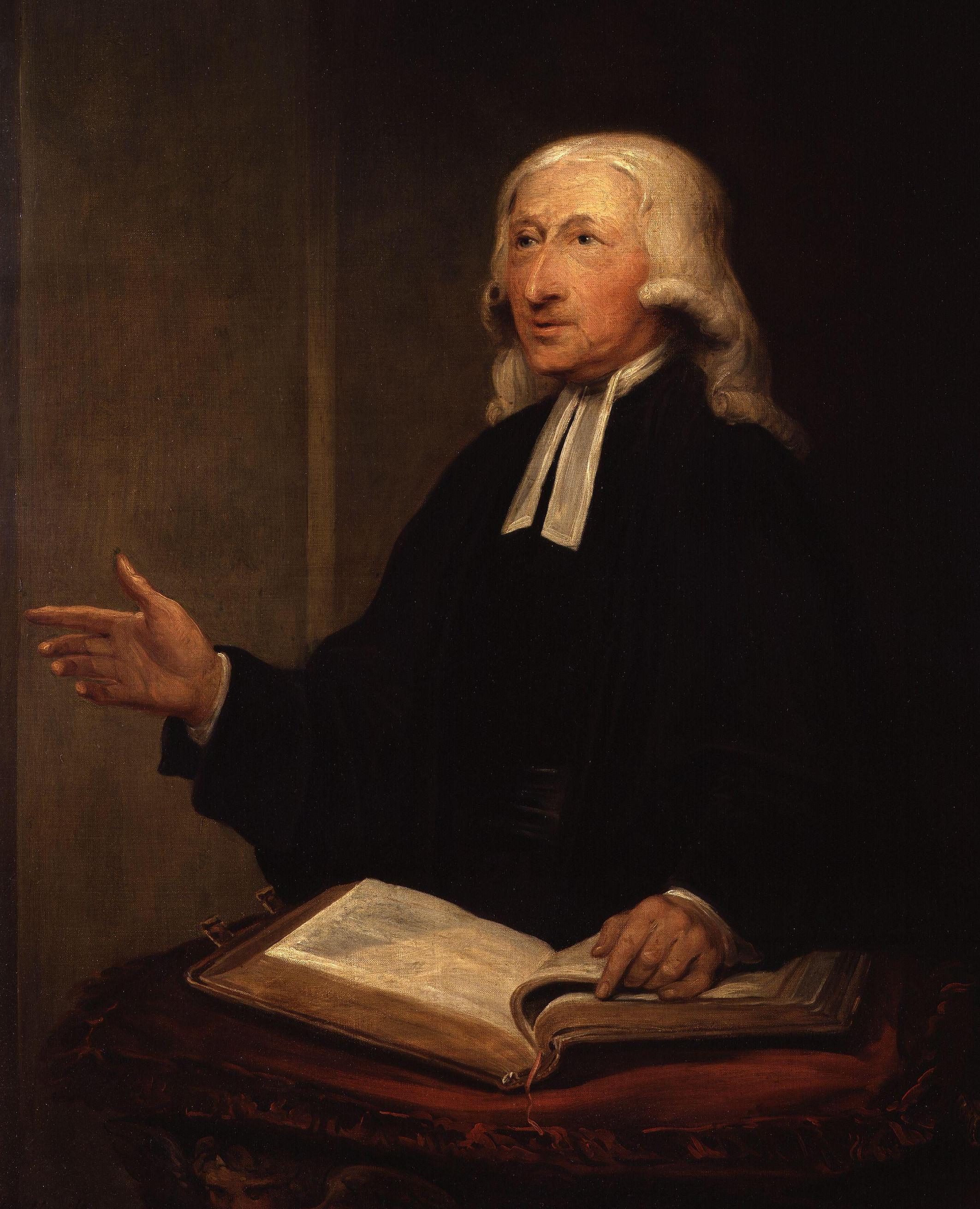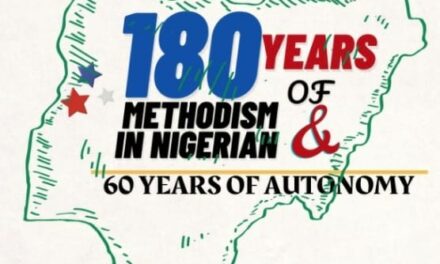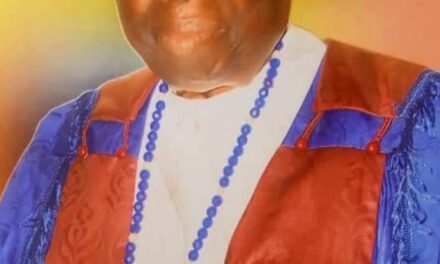“… I am afraid lest they should only exist as a dead sect, having the form of religion without the power” – John Wesley
John Wesley, 295 years after his ordination as a deacon on September 19, 1725, continue to challenge all who call ourselves Methodists to remain faithful to the zeal to “spread Scriptural holiness” that the early Methodists had. Toward the end of his earthly ministry Wesley’s words remind us that ‘the death of the … Methodist Church isn’t the worst thing that can happen; the worst thing that can happen is to lose our vitality,’ “having the form of religion without the power.” Ministering or ‘having the form of religion without power’ in Methodism is not all that different from other denominations hence, Wesley’s religious advice, theory of Methodist Vitality provides its viability as a basis for contemporary Christian Vitality programs, a forward to the past. Wesley was aware of ‘other religious movement that had at first enjoyed vigorous start similar to the one his Methodists were undergoing only to eventually forsake the power, inevitably settle into the form, and finally lose even the outward appearance of religiosity.’ To remain faithful to a form of religion with power is to hold the outer form and the inner power of religion. Just as the engine is designed to run on unleaded, God built us to run in Him. Form of religion with power is run on Holy Spirit who centres our hearts on Jesus Christ. The Holy Spirit help us to see our weakness in form of religion without power so that God can fill us up with His strength for a form of religion with power and salvation.
Forms of religion without power has no salvation, no comfort, no growth, no health, and no genuine love but decline and conflict. Form of religion with power can warm the heart, raise the spirits, humble the proud, convict sinners, strengthen the mind against the day of pandemic, racism, sickness, or even in the hour of death and in hope of eternal life in Jesus Christ.
Laura Bartels Felleman in her book, ‘The Form and Power of Religion: John Wesley on Methodist Vitality’ explained what Wesley meant by the form and power of religion, ‘identifying what Methodist Doctrine, Spirit, and Discipline were according to Wesley.’ Methodist Doctrine, Spirit, and Discipline are meant to work together to renew and flourish the spiritual and missional vitality and continuity of the Methodist Revival. Felleman explained that, Wesley’s constant doctrine was salvation by faith, preceded by repentance, and followed by holiness. Sermons affirmed the love of God for sinful humanity. The effective itinerant system of doctrinal preaching were accompanied with full ‘testimonials from people who claimed to have either no religion or only a lifeless, formal religion until they attended a Methodist preaching service and experienced power of God’s grace.’ Form of religion with power is built on various religious practices and spiritual exercises including private and public devotions, studying the scripture, and sharing in the communion. The warning is that, discerning the outward forms of religion is a simple matter of perception because we see the ritual, hear the liturgies and songs, ‘and taste the food laden with symbolic means’ but their spiritual significance could escape our understanding. The undetectability of the power of religion by the five senses ‘creates a dilemma for those using scientific methods to investigate the practice of ministry.’ Observing the loving or the charitable personalities or the leadership of the religious practitioners ‘is not as the same as discerning the power that caused transformation,’ or healthy growth. Tom Stuckey explains this better, saying, we are ‘long in organisation but short in theology … we are failing completely in organic growth.’ The form of religion without power is short in theology with no personal encounter with God, hence a lot of damage is going on in the church of God as there are many (long organisation) who are within church’s walls, but not within its life, short in theology. The form of religion without power ‘substitute outward connection with the Church for inward union with Jesus Christ.’
The question is, what is the form of religion? Wesley’s religious advice to the Methodists is similar to that found in Paul’s letters to Timothy (2 Tim 1:7-9). Apostle Paul knew who had the power of religion and who did not. The form of religion beyond attention to the ordinances of religion (Baptism and the Last Supper), apostle Paul knew what it was, what was conducive to it, and what was obstructive. Like Paul, Wesley encouraged the Methodists to beware of those who had the form of godliness but denied the power. The reflection is that, ‘just as the raw material of a devil is an angel bereft of holiness,’ the body of religion without the life of religion leads to decay and decline. It is the form of religion with power, the life of God that empowers the ordinances.
Having the form of religion, or godliness without the power ‘reduce Christian disciples to ‘harmlessness,’ using the means of grace, and doing good, a standard.’ Form of religion without power amounts ‘to the performance of outward rites and duties and thus lacked the vital inward principle of religion.’ Forward to the past, reminds us of Wesley’s description of discipleship based on salvation history that ‘occurred when external righteousness sprang from a power that produced internal righteousness.’ Form of religion or godliness with power is inspired by the Holy Spirit, it creates repentance towards God, the result of a great change of a warmed heart. A person or church with form of religion or godliness without power is dead while living. A form of religion without power is like a well without water.
It is very easy and subtle to drift into holding to a form of godliness, but denying its power to transform the heart. The form of religion without power formed the major cults in church history. Apostle Paul explained that vendors of form of religion without power always “enter into households and captivate weak women weighed down with sins” (2 Tim 3:6). They capitalise on people’s ‘emotional and spiritual needs … enticing with sinful desires.’ The form of knowledge without power according to Apostle Paul produces the victims as “always learning and never able to come to the knowledge of the truth” (a saving knowledge of Christ) (2 Tim 3:7). The form of religion without power ‘offer results that are promised to believers in the Bible, but they offer them without bringing people to the cross and to faith in Christ.’ The good news is that, form of religion without power and their vendors will not have the final say (Matt 16:18).
The form of religion with power summons us to a genuine walk with God in the light of His Word. The root of the form of religion without power is what Paul called misplaced affections: “lovers of self, lovers of money, lovers of pleasure rather than lovers of God” (2 Tim 3: 2, 4). Lovers of money as a means of a more comfortable lifestyle flows out of self-love (1Tim 6:9-10). In a post-truth culture that loves pleasure rather than loving God, the form of religion without power flourishes though with boastful false claims. The lost teaching and discipline within the church, hence the form of religion without power in the church today calls for repentance. Personal and collective blindness to our own hypocrisy especially the shift of the fundamental doctrine based on the Bible as the whole and sole rule of Christian faith is promoting our falling into empty religion, a form of godliness without power. Forward to the past calls us to hold fast and remain faithful to Wesley theology of Methodist vitality and growth shaped by ‘the doctrine, spirit, and discipline with which they first set out…’











Recent Comments